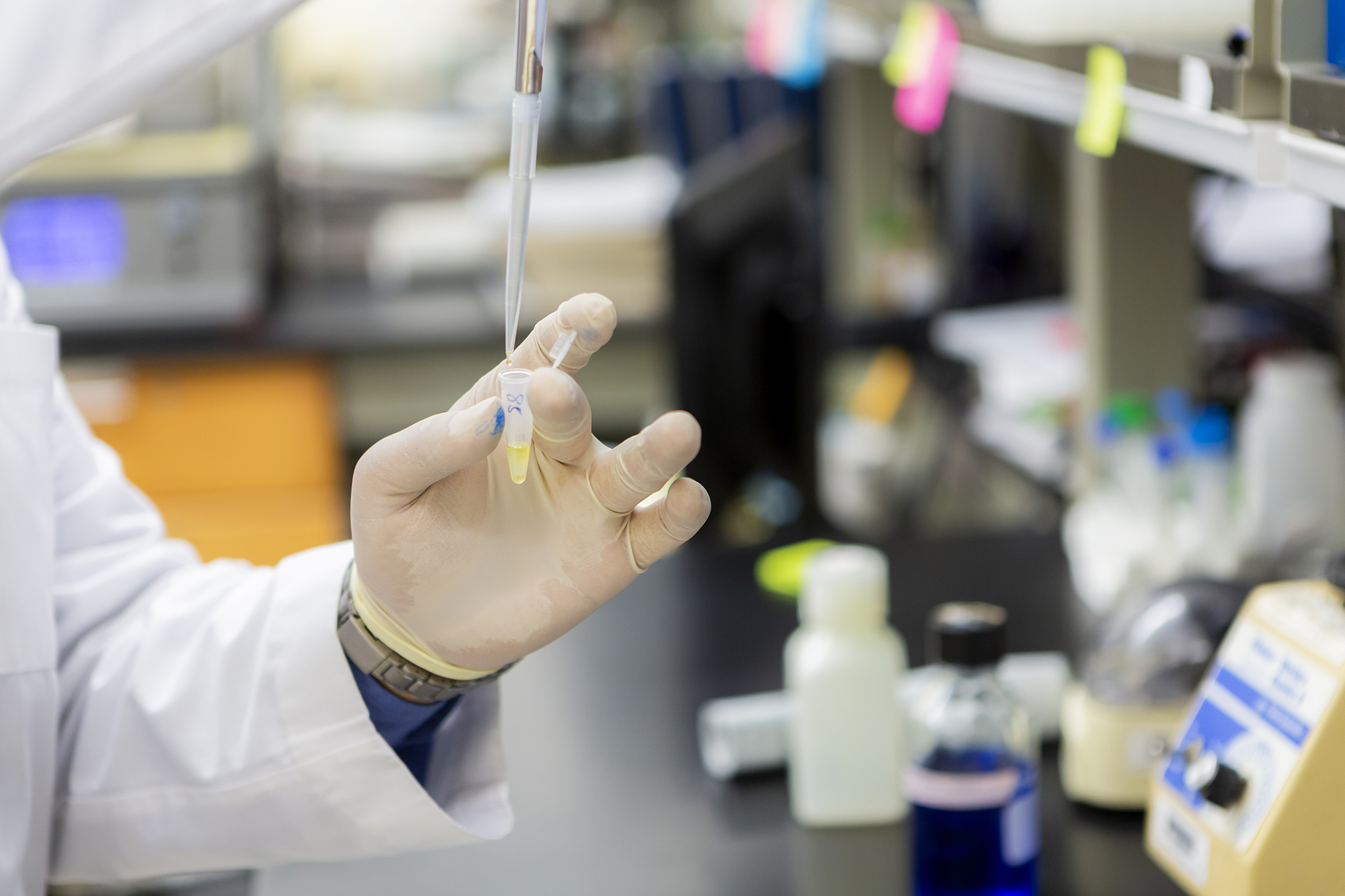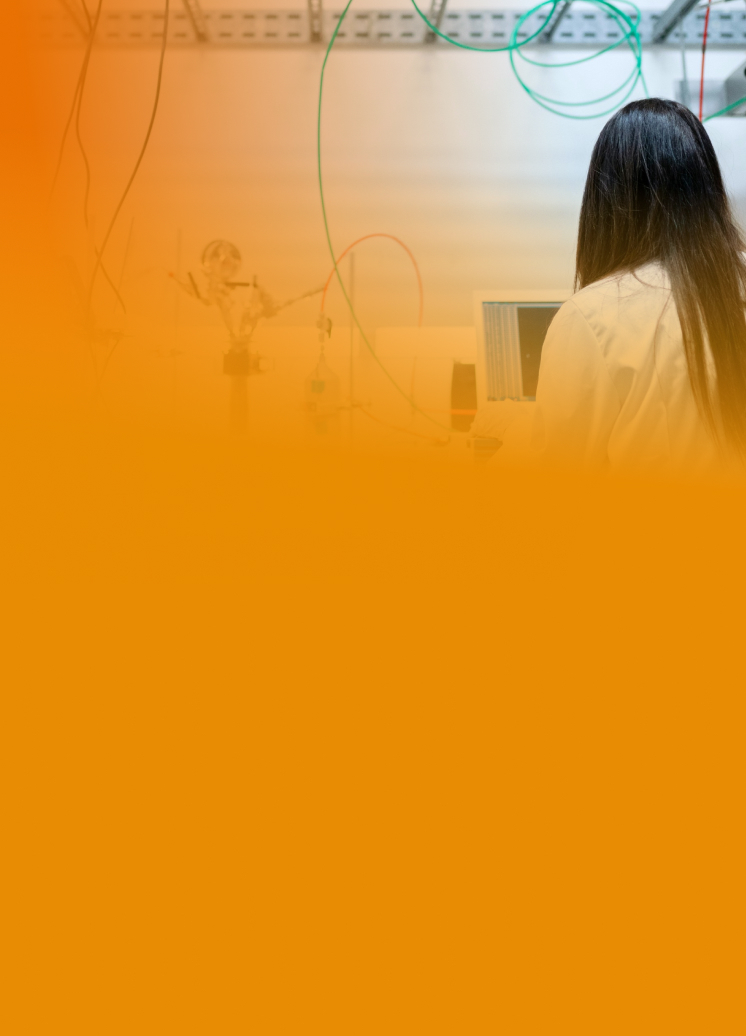
Medicine's New Frontier:
Stem Cell Therapy
Stem Cell Therapy
New Breakthroughs to Repair and Regenerate
As MS progresses, so can a patient's level of disability. Since 2001, Dr. Sadiq has directed Tisch MSRCNY's research efforts to investigate the use of innovative stem cell therapies to repair disabling damage from progressive MS and preserve patient quality of life, and has published several landmark papers on stem cell usage in MS.
Biomarkers
2 new biomarkers were identified that provide a measure of treatment response
76%
of Phase II trial participants saw improved bladder function
Walking Speed
A subset of treatment recipients using a cane or walker saw slight walking speed gains, vs. a 54% decrease in the placebo group

Since 2004, Dr. Violaine Harris and her research team have been investigating a population of adult stem cells from bone marrow called mesenchymal stem cell-derived neural progenitors (MSC-NPs). Their goal is that these cells can be used in transplantation therapy to promote repair and regeneration in progressive MS.
2014
Our Phase I clinical trial was approved. At its conclusion, 75% of participants demonstrated functional neurological improvement.
2018
Our Phase II, placebo controlled, double blind clinical trial began. This was the first study of its kind for progressive MS patients.
2024
Phase II results were published in the peer-reviewd journal Stem Cell Research and Therapy. We are now in the process of applying for approval for this treatment from the FDA.
What are Stem Cells?
Stem cells are a unique kind of human cells with two important characteristics: they can regenerate themselves, and they can change into different kinds of cells.
Dr. Harris and her team are focusing on a group of adult stem cells from bone marrow, called mesenchymal stem cell-derived neural progenitors (MSC-NPs).
- MSC-NP cells have several properties that make them candidates for cell transplantation therapy: - MSC-NP cells are autologous, meaning they are derived from a patient’s own bone marrow. Autologous cells are recognizable by the body and are thus not rejected by immune system after transplantation.
- MSC-NP cells are have a reduced potential for mesodermal differentiation, meaning that they are less likely to change into other cell types. This makes them more appropriate that other options for transplantation into the brain.
- MSC-NP cells can promote repair in the brain and spinal cord by releasing specific proteins that modulate the immune response, and encourage existing brain progenitor cells to mature and remyelinate.


Due to our groundbreaking advancements in stem cell-based therapy for MS, Tisch MSRCNY opened the Regenerative Medicine Laboratory, a state-of-the-art cell production facility. The Regenerative Medicine Laboratory enables the manufacturing of clinical-grade doses of autologous stem cells for treatments in trial subjects with MS. To read published findings from our stem cell work, see:
- Efficacy of intrathecal mesenchymal stem cell-neural progenitor therapy in progressive MS: results from a phase II, randomized, placebo-controlled clinical trial (2024)
- Mesenchymal stem cell-derived neural progenitors in progressive MS: Two-year follow-up of a phase I study (2021)
- Phase I Trial of Intrathecal Mesenchymal Stem Cell-derived Neural Progenitors in Progressive Multiple Sclerosis (2018)
- Stem Cell Therapy in Multiple Sclerosis: A Future Perspective (2015)
- Clinical and pathological effects of intrathecal injection of mesenchymal stem cell-derived neural progenitors in an experimental model of multiple sclerosis (2012)
- Characterization of Autologous Mesenchymal Stem Cell-Derived Neural Progenitors as a Feasible Source of Stem Cells for Central Nervous System Applications in Multiple Sclerosis (2012)

